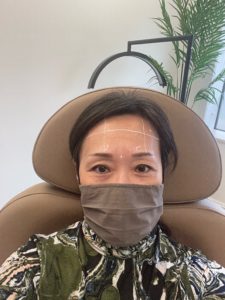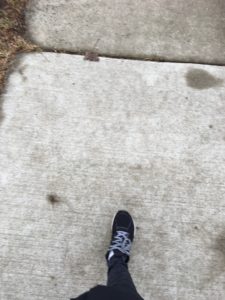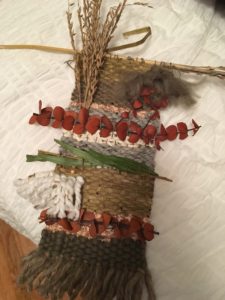I had 15 units of Botox injected into my “elevens” – the two frown lines fighting to take permanent residence in between my thinning but microbladed eyebrows. I’m certain at several points in my life I swore I would never succumb to vanity in this manner, but I wasn’t 51 at the time. I didn’t wake up looking like I was angry or worried or scowling. Maybe 20 years from now I will chalk up this decision to my youth, but for now I’m just going to keep walking over to a mirror to see if I can still move those facial muscles.
Do you have a tattoo?
It’s one of those things people think about doing but don’t want to readily admit thinking about it, or they do it but don’t put it on blast and may even deny having it done even though it can sometimes be pretty obvious to other people what is going on. Tattoos and body piercing have lost their stigma, even in religious spaces. Skincare regimens are so normal that my sons who are in their 20s asked about moisturizer and sunscreen. (My Dear Readers, if you are not using a facial sunscreen daily AND year-round we need to talk.) During shelter-in-place there were many social media threads about dyeing hair at home to cover roots and the increasing number of gray hairs popping up. I see requests for just about every personal care service on local moms’ FB pages but I’ve yet to see anyone ask about injections and fillers. Facials? Dermatologists? Microblading? Eyelashes? Aluminum-free deodorant? Bikini waxing? ALL THREADS ON MULTIPLE FB PAGES for working moms, community moms, etc.
But I noticed that the one self-care topic that was solely for word-of-mouth meaning an actual conversation or text and never publicly solicited information was around injecting chemicals into your body. (Wink, wink.) And because I am also prone to being Judgey McJudgepants why would anyone talk with me about paralyzing their facial muscles?
So why do it?
I actually think I look good “for my age” whatever that might mean to you. My mom and grandmother did not use expensive serums or get facials, but they drilled the importance of cleansing and moisturizing. I added the sunscreen years after already damaging my skin with baby oil burns. I have great genes to boot. I want to minimize those lines because they remind me of my anger and the loud inner critic.
There is nothing wrong with anger. Somewhere between Sunday School, sermons, and home I learned that emotions and specifically anger was bad. I have since unlearned that toxic lesson instead holding on to the energy and passion I feel and experience when I encounter injustice – anger. Anger has levels, stages, types and it’s all related to how we are experiencing a person or situation in relation to our safety. For example, as a Christian and as an Asian American I feel a great deal of anger when my faith community inflicts pain against another group of people or when my AAPI community is the target of harassment and violence. I am still learning how to deal with my anger in healthy ways, but there was one thing that continued to bother me.
But what about not letting the sun go down on your anger?
BE ANGRY [at sin—at immorality, at injustice, at ungodly behavior], YET DO NOT SIN; do not let your anger [cause you shame, nor allow it to] last until the sun goes down. Ephesians 4:26 Amplified Version
First, let me just say that this verse created unnecessary havoc in the early years of our marriage. Married people, if you are angry at each other and it’s time for bed, go to bed. You need to rest to think, listen, and love well.
Second, the version I grew up didn’t explain how anger could be ok and the emphasis was on the sin. I know. Not surprising. So somewhere in there it gets translated and taught as being angry is sin so don’t be angry and if you are angry make sure you get rid of that ickiness before bedtime.
Maybe I’m the only one who internalized it that way, but there it is. And every time Peter and I couldn’t resolve our conflict before sleeping I felt like a failure and increasingly sleep deprived. That is what I had to unlearn and to honor the anger I feel at immorality, injustice and ungodly behavior. But I still struggle with what it means to not let my anger last until the sun goes down. The morning usually doesn’t hold new answers so much as a continuation of whatever it was that makes me angry.
Which brings me back to my elevens. This isn’t about looking younger. That might come later. I can’t help but wonder if it’s like getting my first tattoo, which lead to my next tattoo. The gateway.
Those lines aren’t really wrinkles so much as they are a reminder of every moment of anger and frustration. They are reminders to me of the anger I feel in my emotions and in my body, reflected outwards to those looking at me, those who might never know me. I already feel the anger, but to see it reflected back at me every morning? I am tired of the reminder. I don’t need another reminder of how angry this world makes me feel.

My face marked up for potential injections. We opted just for the three spots in between my eyebrows.


